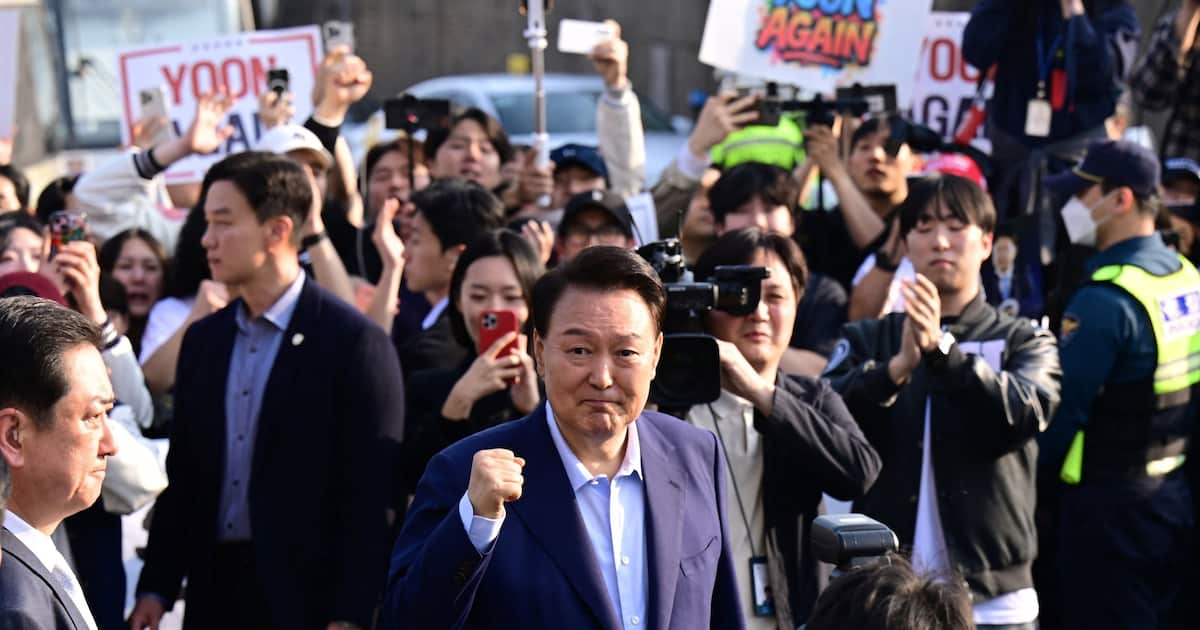Korea's Conservatives: Yoon and the Path Forward
South Korea's political landscape is experiencing a significant shift under President Yoon Suk-yeol's conservative leadership. His election victory marked a turning point, ushering in a new era after years of progressive rule. But what does this mean for the future of South Korean conservatism, and what challenges lie ahead for President Yoon and his party? This article delves into the complexities of Yoon's presidency and explores the path forward for Korean conservatives.
Yoon's Presidency: A Conservative Resurgence?
Yoon's election was a resounding victory for conservatives, fueled by promises of economic reform, stronger national security, and a more assertive stance against North Korea. His campaign resonated with voters disillusioned with the previous administration's perceived shortcomings. However, his presidency has not been without its challenges.
Key Policy Initiatives and Their Impact
-
Economic Policies: Yoon's administration has focused on deregulation and market-friendly reforms, aiming to boost economic growth and attract foreign investment. The long-term effects of these policies are still unfolding, and debates continue regarding their impact on income inequality and social welfare programs. Further analysis is needed to assess their full impact.
-
Foreign Policy: Yoon has pursued a more closely aligned relationship with the United States, strengthening the existing alliance and cooperating closely on regional security issues, particularly concerning North Korea's nuclear program. This has been met with both support and criticism, with some questioning the potential impact on South Korea's relations with other regional powers.
-
Social Issues: Yoon's stance on social issues, particularly those relating to gender equality and LGBTQ+ rights, has been a point of contention. His administration's policies in these areas have sparked considerable public debate and protests, highlighting the divisions within South Korean society.
Challenges Facing the Conservative Movement
Despite Yoon's electoral success, the conservative movement faces several significant challenges:
Internal Divisions within the Party
The conservative party is not monolithic. Internal factions and differing ideological viewpoints create friction and can hinder effective policymaking. Overcoming these internal divisions will be crucial for the party's long-term success. Bridging these gaps will require strong leadership and a commitment to finding common ground.
Public Opinion and Approval Ratings
President Yoon's approval ratings have fluctuated significantly throughout his term. Maintaining public support requires addressing pressing economic concerns, effectively managing social divisions, and demonstrating decisive leadership on key policy issues. Sustained engagement with the public and transparency in governance are essential.
The North Korean Threat
The ongoing threat from North Korea remains a critical challenge. Balancing the need for strong national defense with the pursuit of diplomatic solutions requires a nuanced and carefully calibrated approach. Maintaining regional stability requires international cooperation and a multifaceted strategy.
The Path Forward: Rebuilding Trust and Shaping the Future
For Korean conservatives, the path forward involves several key steps:
- Addressing Economic Inequality: Implementing policies that promote inclusive growth and address income disparity will be vital to gaining broader public support.
- Building Bridges with Civil Society: Engaging in constructive dialogue with civil society organizations and addressing concerns about social justice issues will help rebuild trust.
- Maintaining Strong Alliances: Strengthening alliances with key partners, particularly the United States, is crucial for navigating regional geopolitical complexities.
- Modernizing the Conservative Ideology: Adapting conservative principles to address the challenges of the 21st century, including technological advancements and climate change, will be essential.
The future of Korean conservatism under President Yoon's leadership remains uncertain. Navigating the complex challenges ahead requires strong leadership, a willingness to compromise, and a commitment to addressing the concerns of all South Koreans. Only time will tell if Yoon's administration can successfully guide the country toward a prosperous and stable future. [Link to a relevant news source about South Korean Politics]
Keywords: South Korea, President Yoon Suk-yeol, Korean Conservatives, South Korean Politics, North Korea, Economic Policy, Foreign Policy, Social Issues, Political Challenges, Conservative Movement, Election, Asia, Geopolitics.
